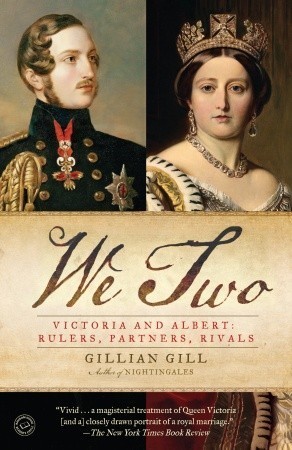What do you think?
Rate this book


466 pages, Paperback
First published May 19, 2009
This book is a very good introduction to the lives of Queen Victoria and her husband, Prince Albert. It is detailed without being oppressive, entertaining while still being informative, and well-researched in addition to being well-written. Pictures and handy family trees scattered through the chapters help the reader understand Gill's points while the informative end notes are an un-looked for but gratifying treat.
My only criticism is that a double biography such as this often has trouble deciding how to lay out the narrative. Gill focuses first on Victoria's life, then Albert's, and finally their marriage. This technique is handy in examining their lives apart in contrast to their lives together, but once they are married events start to become jumbled as Gill completely disregards a liner timeline and instead uses the chapters to explain certain aspects/events in their marriage. While this is acceptable when only dealing with one person (and, admittedly, Gill does this throughout the book), when trying to discuss two people things become confusing. For example, a letter from Robert Peel to Prince Albert is quoted and explained as just having been written, yet chapters before Gill described Peel's death. Victoria's successive pregnancies are first described in a sentence full of dates, and later Gill uses them as hallmarks for such-and-such event, i.e. "The Queen was in her third pregnancy at this time..." which forces the reader to go back and look up when, exactly, that was. While I admit it is nice that the reader is not submitted to a year-by-year account of their marriage, always jumping from event to event forces Gill to remind her audience when said event is occuring.
Other than the criticisms described above, We Two is a very good look at the Royal Marriage of two very different but still very sympathetic people. I recommend it for anyone with an interest in Victoria and Albert regardless of their experience with History.